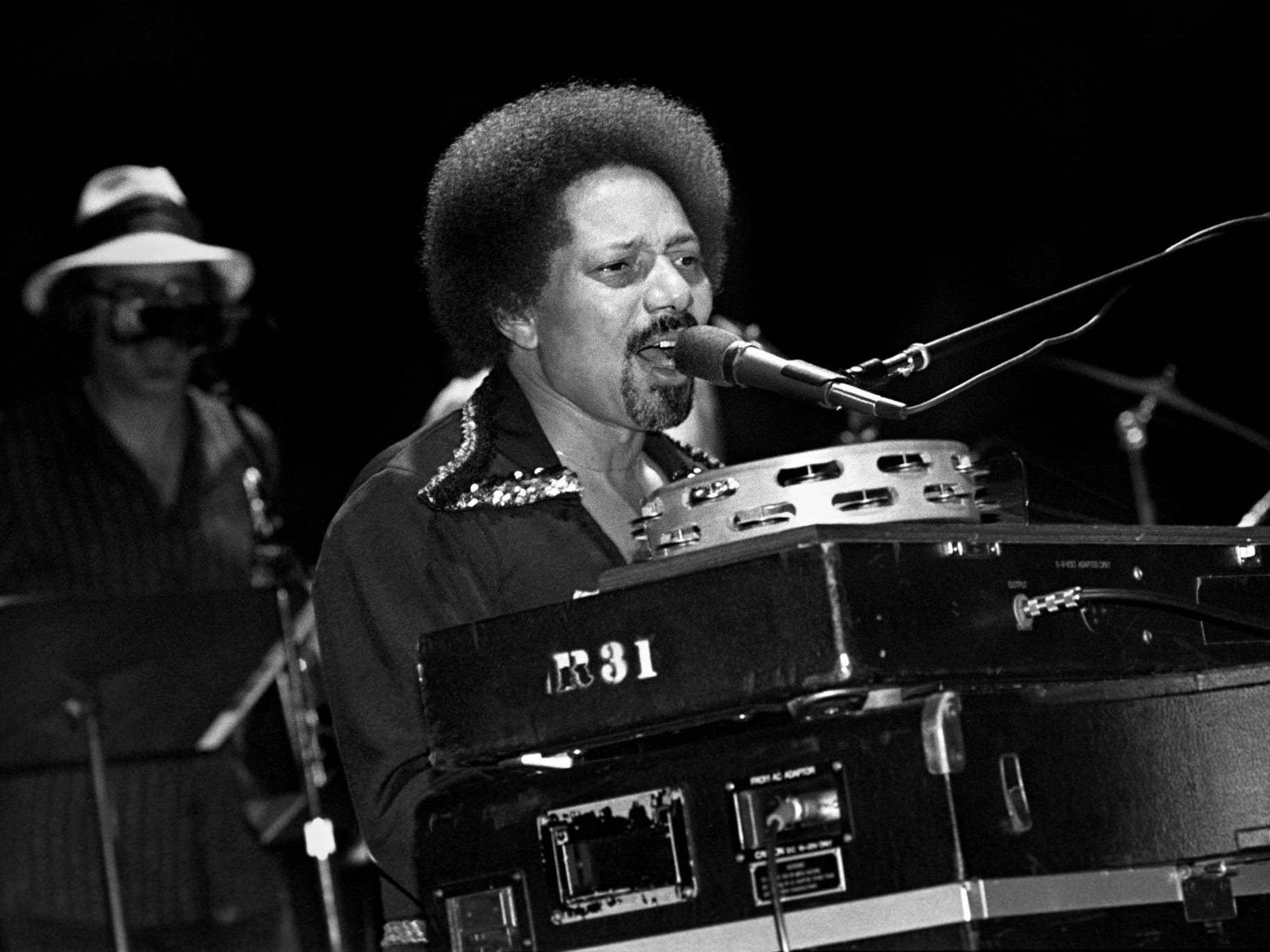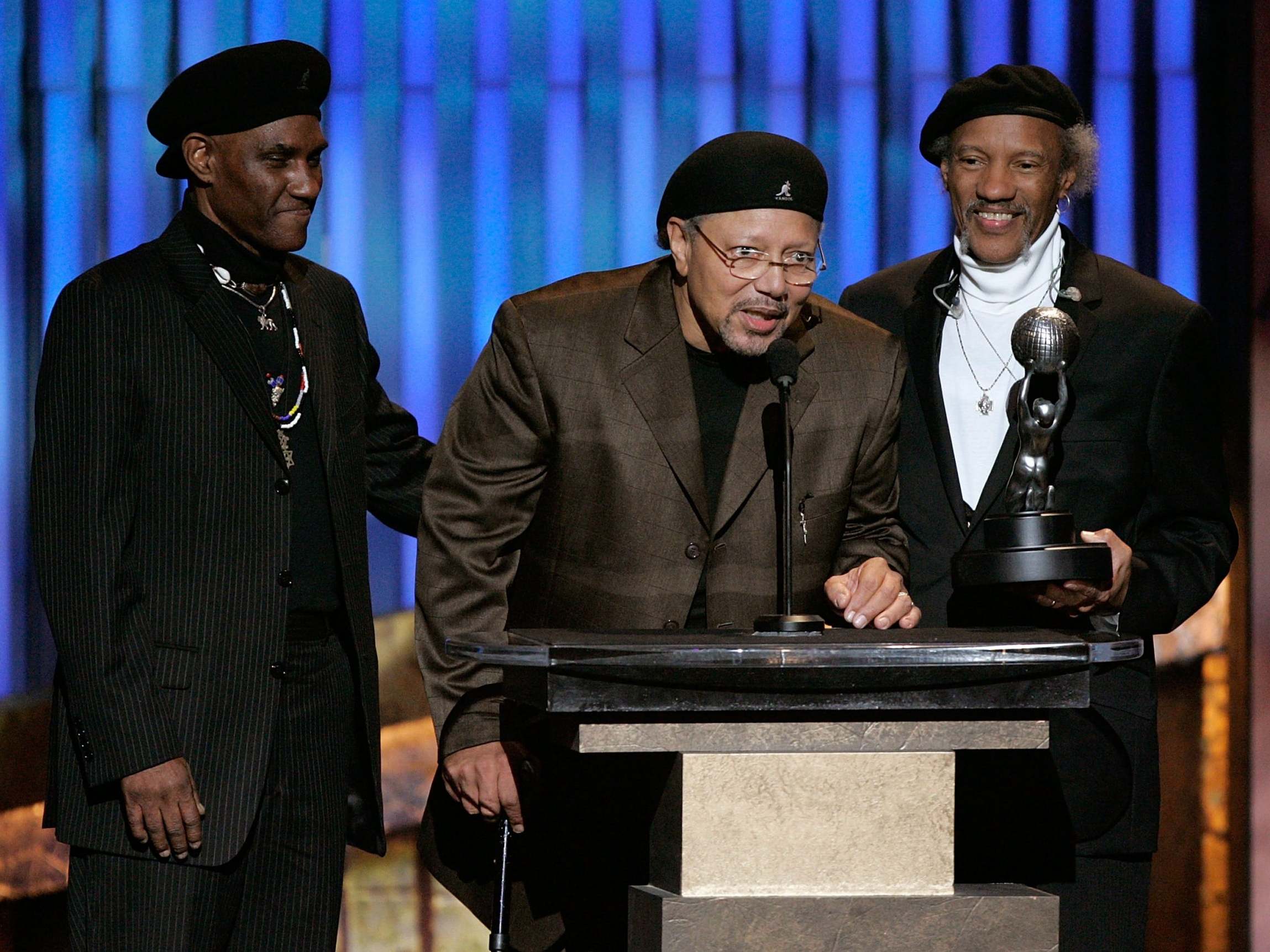Art Neville: Musician who helped to define New Orleans R&B
With The Meters and later The Neville Brothers, the keyboardist brought his distinctive funk and soul to worldwide attention

Your support helps us to tell the story
From reproductive rights to climate change to Big Tech, The Independent is on the ground when the story is developing. Whether it's investigating the financials of Elon Musk's pro-Trump PAC or producing our latest documentary, 'The A Word', which shines a light on the American women fighting for reproductive rights, we know how important it is to parse out the facts from the messaging.
At such a critical moment in US history, we need reporters on the ground. Your donation allows us to keep sending journalists to speak to both sides of the story.
The Independent is trusted by Americans across the entire political spectrum. And unlike many other quality news outlets, we choose not to lock Americans out of our reporting and analysis with paywalls. We believe quality journalism should be available to everyone, paid for by those who can afford it.
Your support makes all the difference.The death of Art Neville, following those of Dr John and Dave Bartholomew, means New Orleans rhythm & blues has lost three of its founding fathers this summer. Where Bartholomew was closely associated with Fats Domino – as his discoverer, producer, band leader and co-songwriter – and Dr John enjoyed a long, distinctive solo career, Neville, who has died aged 81, will be remembered as a team player, his virtuoso keyboard skills ensuring The Meters and then The Neville Brothers took the funk and soul sounds of New Orleans to the world.
The eldest son of Arthur Neville Sr and Amelia (Landry), Art grew up in the working-class Calliope projects. Music was in church, bars and on the street and Art taught himself piano with his schoolmate James Booker giving advice.
As a teenager he joined The Hawketts and began playing local bars and dances. The band were invited by radio DJ Ken Elliot, aka Jack the Cat, to record “Mardi Gras Mambo”, a song celebrating the annual New Orleans celebration, in January 1954. Sixteen-year old Neville handled lead vocals and, when released by Chess Records, the song became an R&B hit and remains one of the great New Orleans anthems, played and performed across the decades – although Neville later observed The Hawketts never received any payment for recording it.
Success saw The Hawketts gain work across the US but they soon splintered and Neville signed a solo deal with Specialty Records. Drafted into the navy, he served between 1958 and 1962, still performing and recording in New Orleans when on shore leave.
Neville’s younger brothers Aaron, Charles and Cyril all became professional musicians – when Aaron scored solo hits in the 1960s with “Over You” and “Tell It Like It Is”, Art would join him on the road as keyboardist and band leader.
In 1965 Neville formed The Meters with three exceptionally talented young musicians. They performed a loose-limbed dance music that would soon be known as funk, and were hired by producer/songwriter Allen Toussaint to be the house band in his studio as he created hits for local singers, including Lee Dorsey and Irma Thomas.
So strong were The Meters’ performances on these records they began scoring instrumental R&B hits in 1969. The Meters are heard on hundreds of New Orleans soul and funk records, including Dr John’s 1973 hit “Right Place, Wrong Time” and Labelle’s 1974 US No 1 “Lady Marmalade”.
The Meters won the respect of many British rock musicians: Robert Palmer employed them as his backing band, Paul McCartney hired them to play for the launch party of his Venus and Mars album and The Rolling Stones took them around the world as support for their 1976 tour. Also that year The Meters and Art’s brothers gathered to work on an album for New Orleans Mardi Gras Indian tribe The Wild Tchoupitoulas. This unique recording featured the tribe’s street chants as they parade on Mardi Gras day backed by The Meters with the Neville brothers singing harmonies.

Not long after, frustrated by the failure of their albums to sell strongly and conflicting egos, The Meters split and, in 1978, Art formed The Neville Brothers with Aaron, Charles and Cyril. With Aaron as lead vocalist, the Nevilles were New Orleans’ first family yet initially struggled to reach a wide audience. This changed with their 1988 album Yellow Moon that came with an ambient production care of U2 producer Daniel Lanois and won them a Grammy (ironically for Best Pop Instrumental).
From then on The Neville Brothers were a staple on festivals across the US and Europe until disbanding in 2012 as Aaron concentrated on his solo career. In 2005 Hurricane Katrina devastated Art’s house – it was later looted – but he returned to New Orleans several months later and purchased a new house on the same street that he grew up on. In recent years Art toured with The Meters – when they could agree on terms – and joined his brothers to perform as the annual closing act at the New Orleans Jazz & Heritage Festival. He suffered several strokes but only announced his retirement in December 2018.
Art was nicknamed “Poppa Funk” and The Meters’ records have been repeatedly sampled by rap and dance music producers. With The Neville Brothers he ensured that Aaron Neville’s unique voice got heard worldwide. And in New Orleans he will forever be part of the city’s soundtrack with “Mardi Gras Mambo”.
He is survived by his second wife Lorraine and three children, two from his first marriage.
Art Neville, musician, born 17 December 1937, died 22 July 2019
Join our commenting forum
Join thought-provoking conversations, follow other Independent readers and see their replies
Comments